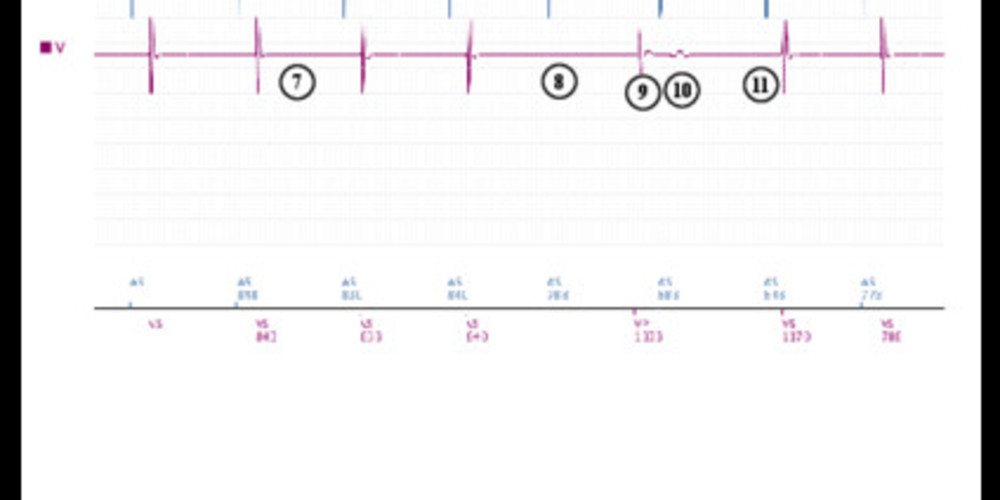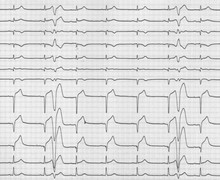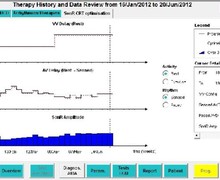Rythmiq and AV block (1)
Tracing
Manufacturer Boston Scientific
Device PM
Field AV delays, refractory periods management of tachycardia
N° 1
Patient
- 81-year-old woman
- Vitalio dual-chamber pacemaker (Boston Scientific) for episodes of paroxysmal AV block
- Rythmiq algorithm ON
- Ventricular pacing < 5%
- Stored Rythmiq episodes

Graph and trace
- Atrial sensing and ventricular sensing
- First dropped P wave
- VVI backup pacing at a rate 15 bpm (45 bpm, 1333 ms) lower than the lower rate limit (60 bpm)
- Second dropped P wave
- Slow ventricular beat (VP-VS interval 170 ms slower than the lower rate limit)
- Third dropped P wave and VVI backup pacing (45 bpm)
- 3 slow ventricular beats over the last 11 ventricular beats and the device switches to DDD mode (Rythmiq)
- Atrial sensing and ventricular pacing
Comments
- This tracing shows some characteristics of the Rythmiq algorithm
- When atrioventricular conduction is preserved, the pacemaker operates in ADI(R) mode with VVI backup
- The device provides AAI(R) pacing at the lower rate limit and/or sensor indicated rate
- The device provides backup VVI pacing at a rate of 15 bpm slower than the programmed lower rate limit
- The backup VVI pacing rate is limited to no slower than 30 bpm and no faster than 60 bpm
- For a lower rate limit < 45 bpm, the VVI Back-up is 30 bpm; for a lower rate limit > 75 bpm, the VVI Back-up is 60 bpm
- Switch from ADI/VVI backup to DDD mode is not based on the presence of dropped P waves but on the presence of long ventricular beats
Other articles that may be of interest to you





